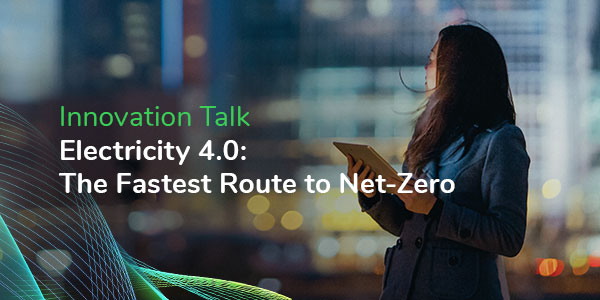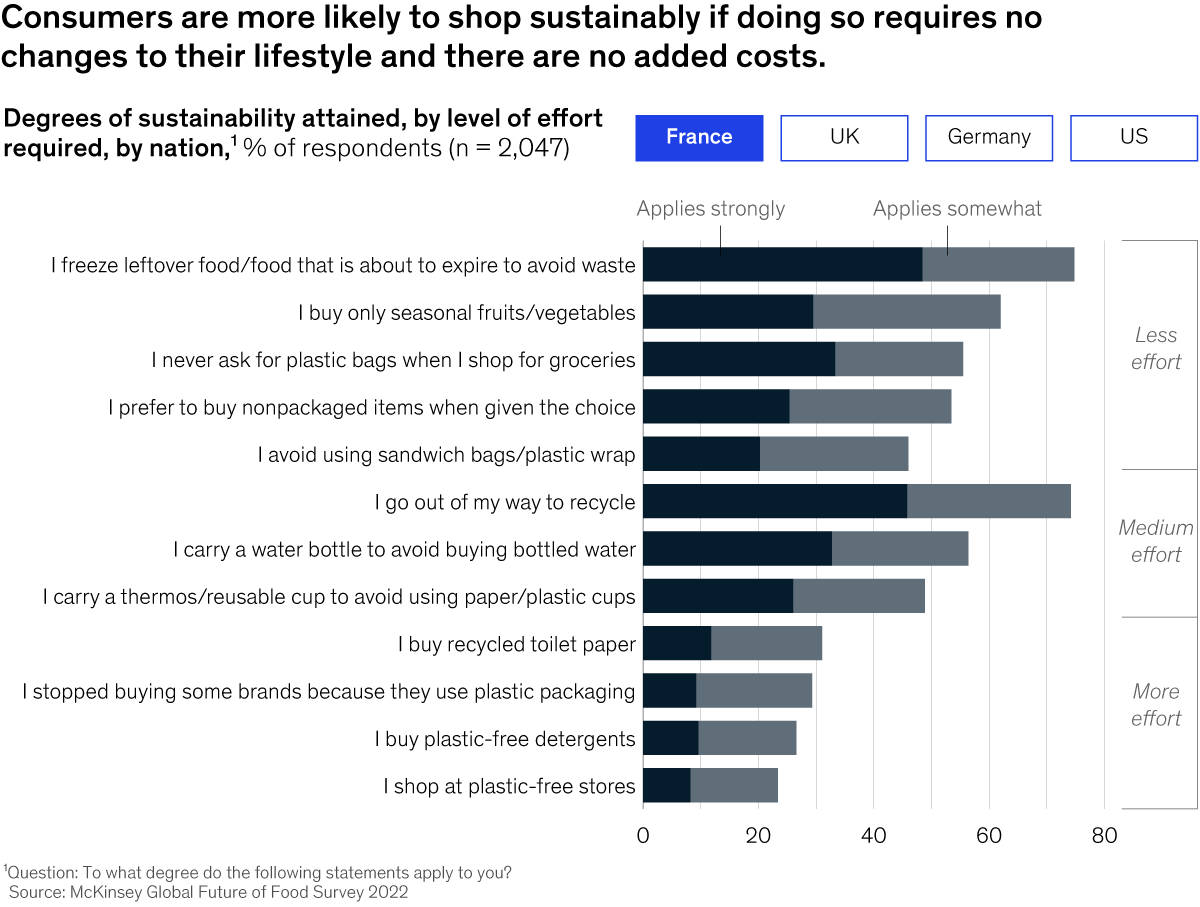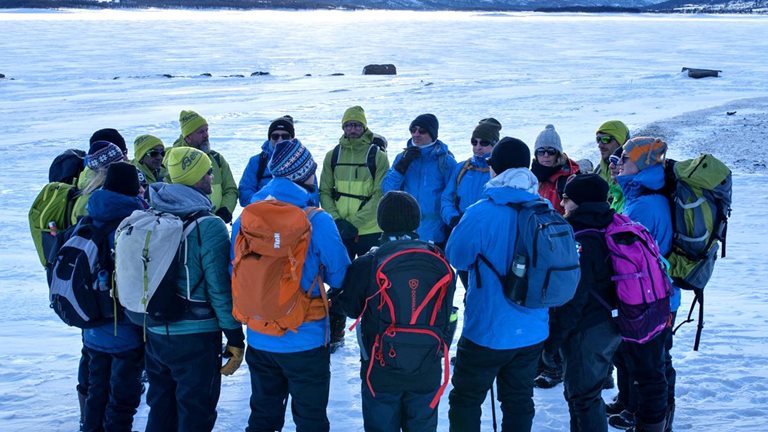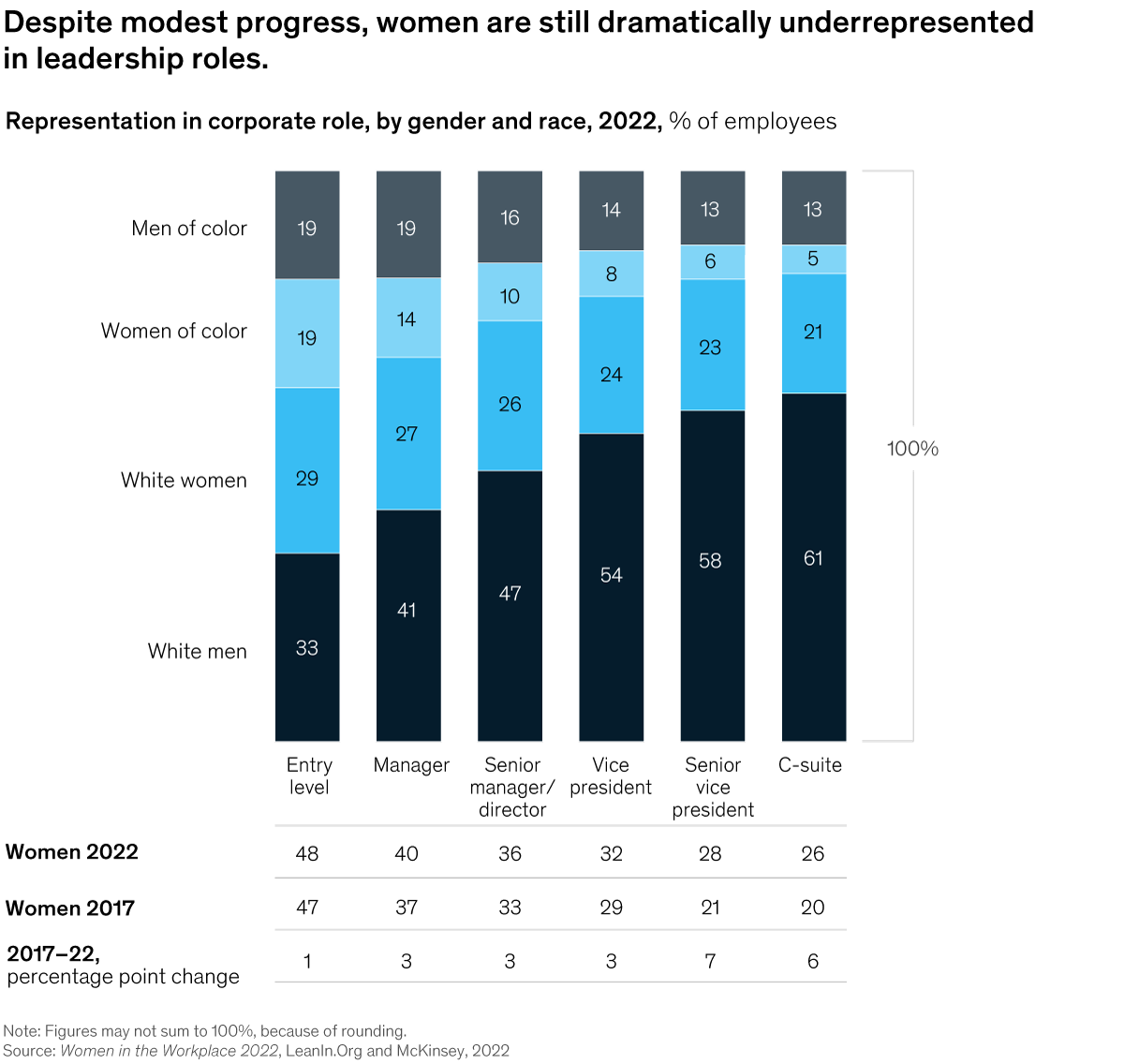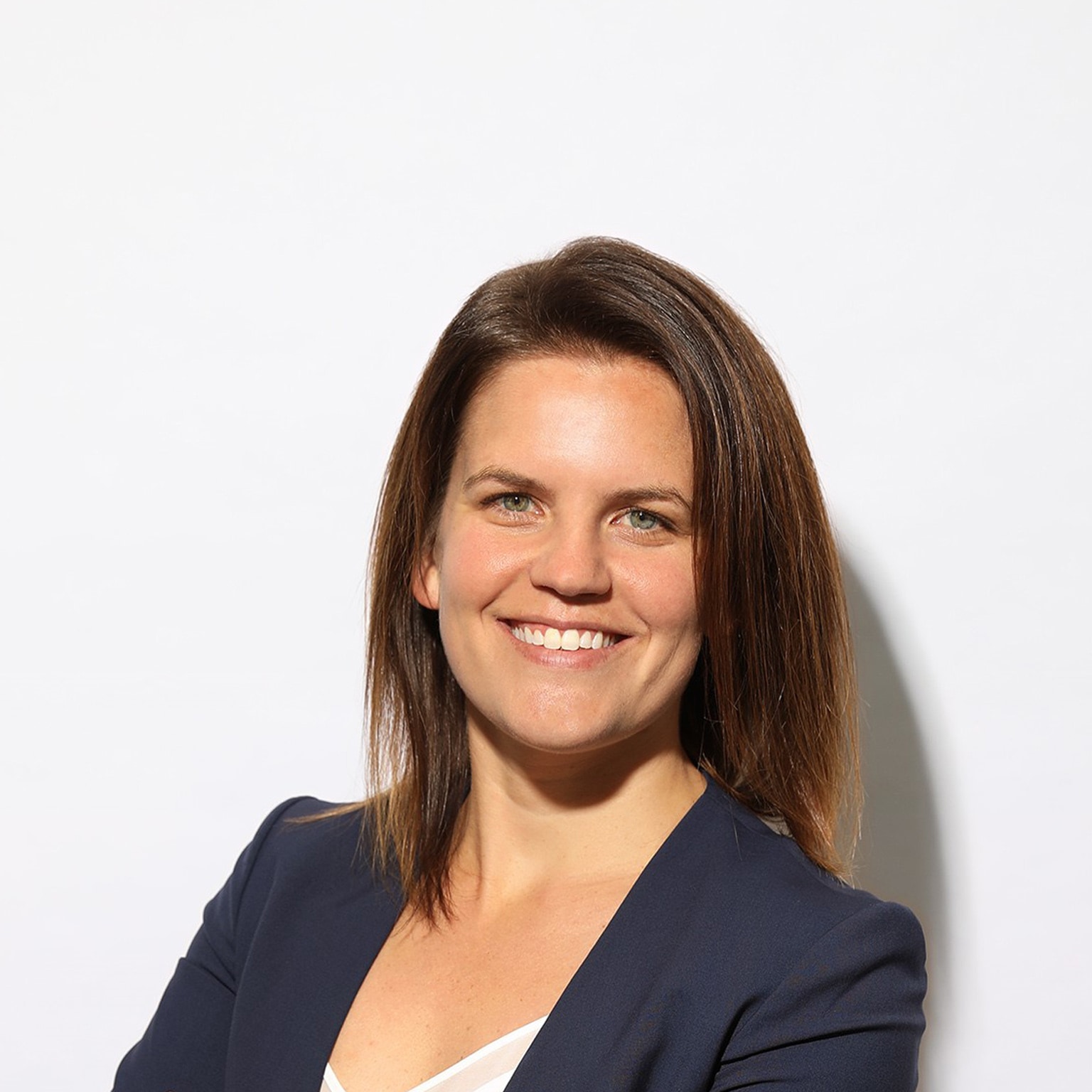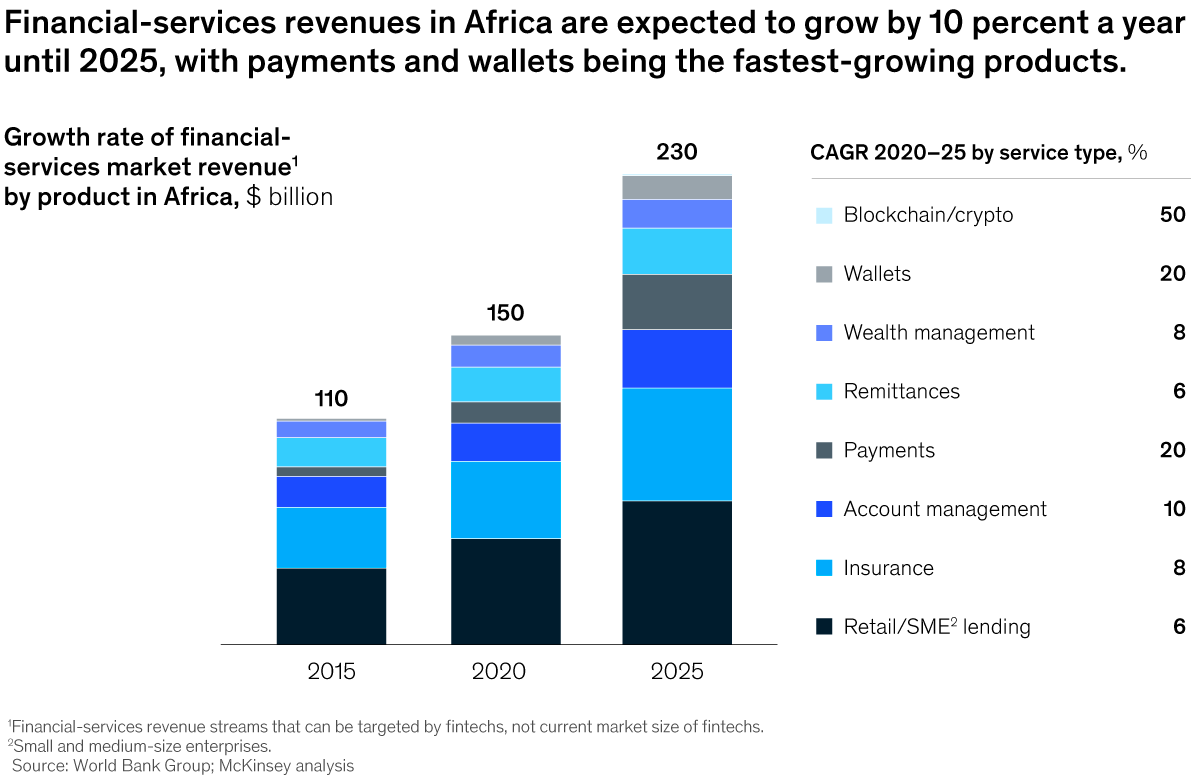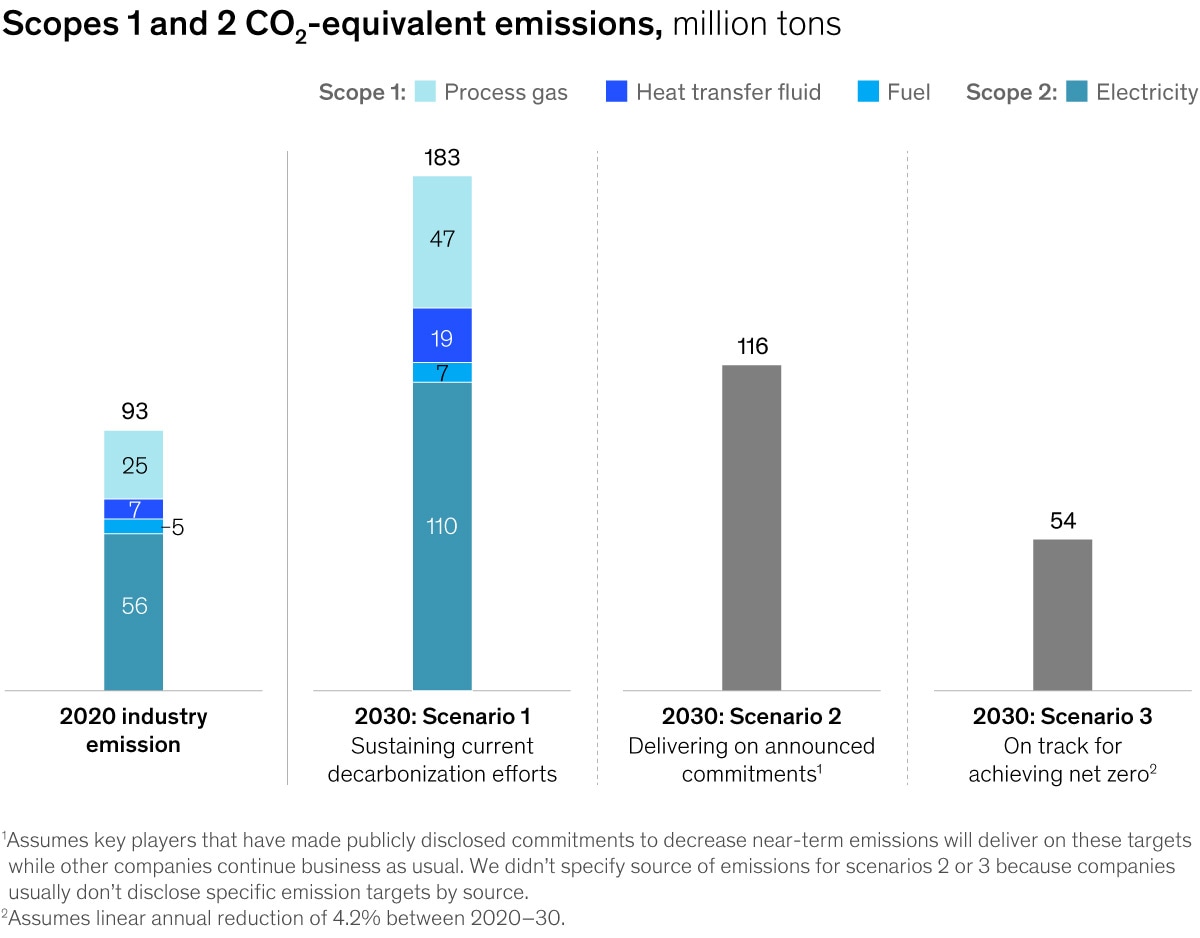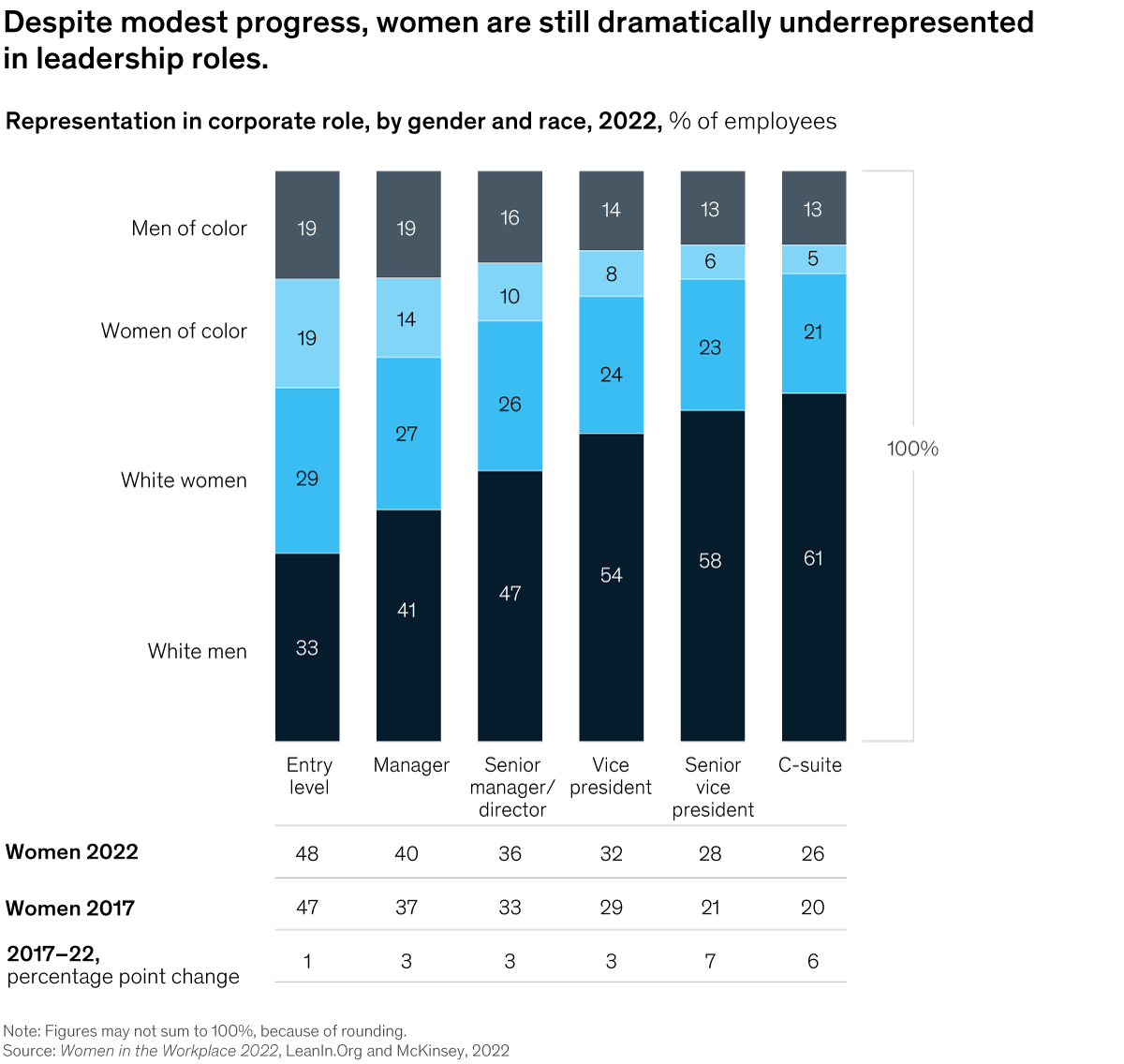Archives
- By thread 3689
-
By date
- June 2021 10
- July 2021 6
- August 2021 20
- September 2021 21
- October 2021 48
- November 2021 40
- December 2021 23
- January 2022 46
- February 2022 80
- March 2022 109
- April 2022 100
- May 2022 97
- June 2022 105
- July 2022 82
- August 2022 95
- September 2022 103
- October 2022 117
- November 2022 115
- December 2022 102
- January 2023 88
- February 2023 90
- March 2023 116
- April 2023 97
- May 2023 159
- June 2023 145
- July 2023 120
- August 2023 90
- September 2023 102
- October 2023 106
- November 2023 100
- December 2023 74
- January 2024 75
- February 2024 75
- March 2024 78
- April 2024 74
- May 2024 108
- June 2024 98
- July 2024 116
- August 2024 134
- September 2024 130
- October 2024 141
- November 2024 112
-
The secret weapon of the American industrial revival
On Point
Inside the “Titanium Economy”
by "McKinsey On Point" <publishing@email.mckinsey.com> - 11:31 - 22 Nov 2022 -
In the metaverse, women are locked out of leadership
Harmony Internal - McKinsey
Infuse diverse leadership Yes, I'm still interested 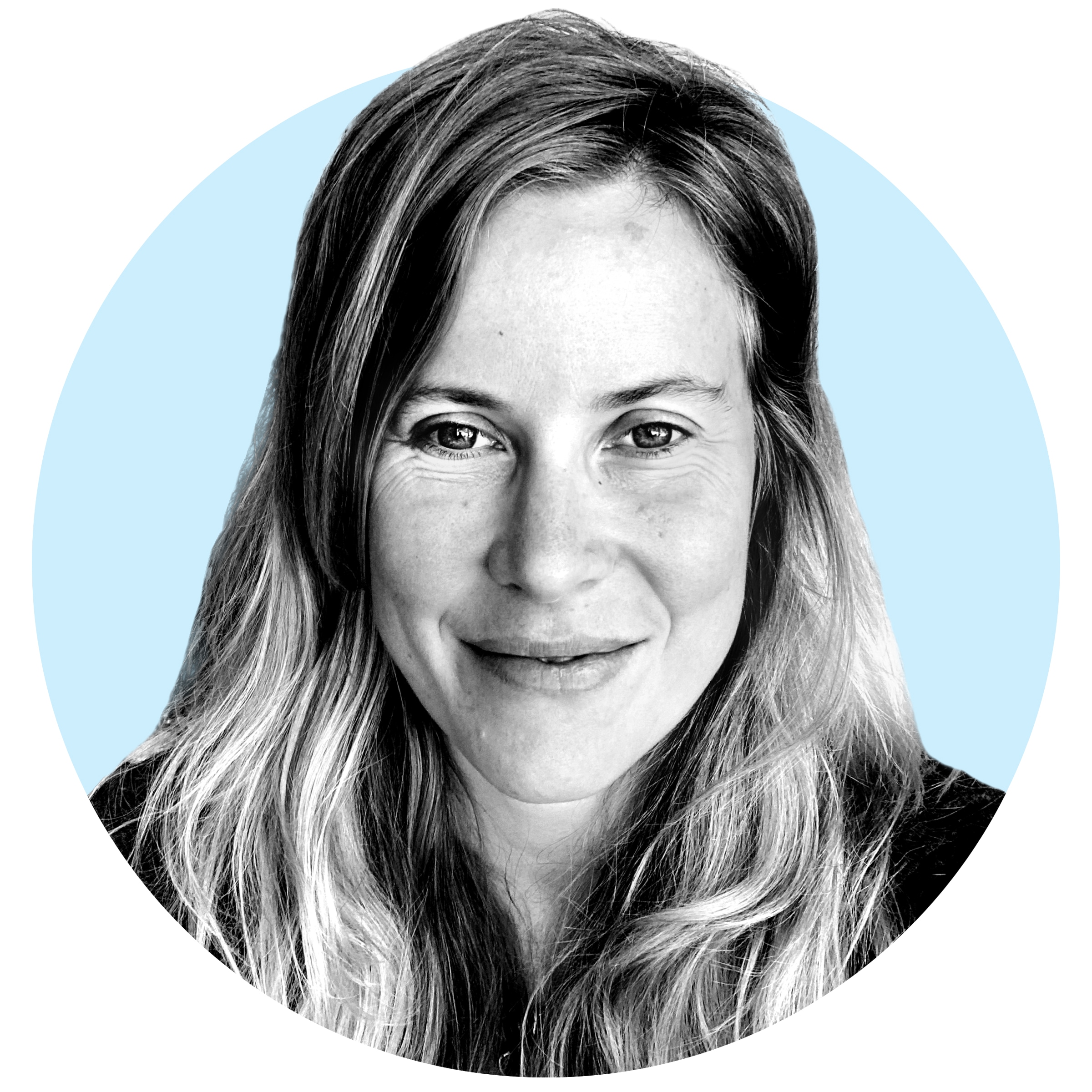
Edited by Stephanie d’Arc Taylor
Editor, Southern CaliforniaFor many, the metaverse means potential for an exciting future. But so far, meta-society is facing some of the same intractable issues we do IRL. In their new article, McKinsey senior partner Lareina Yee and her co-author, partner Mina Alaghband, point to a discernable gender gap in metaverse leadership. Analyzing a range of data on the early-stage metaverse, Yee found that women are just as likely to spend time in the metaverse as men, and are more likely than men to spearhead metaverse initiatives. But when it comes to leadership, the gender gap reflects one that exists in Fortune 500 companies, where less than 10 percent of CEOs are women. For a closer look at the numbers, check out the article—featuring plenty of data visualizations—here.
Quote of the day
—Vineeta Agarwala, a general partner at the venture capital firm Andreessen Horowitz, on what patients want in “Vineeta Agarwala on the promise—and limits—of AI in drug discovery”
Chart of the day
ALSO NEW
Share these insights
Did you enjoy this newsletter? Forward it to colleagues and friends so they can subscribe too. Was this issue forwarded to you? Sign up for it and sample our 40+ other free email subscriptions here.
This email contains information about McKinsey's research, insights, services, or events. By opening our emails or clicking on links, you agree to our use of cookies and web tracking technology. For more information on how we use and protect your information, please review our privacy policy.
You received this email because you subscribed to the Daily Read newsletter.
Copyright © 2022 | McKinsey & Company, 3 World Trade Center, 175 Greenwich Street, New York, NY 10007
by "McKinsey Daily Read" <publishing@email.mckinsey.com> - 05:14 - 22 Nov 2022 -
Vineeta Agarwala on the promise—and limits—of AI in drug discovery
Harmony Internal - McKinsey
Create new insights Yes, I'm still interested Share these insights
This email contains information about McKinsey’s research, insights, services, or events. By opening our emails or clicking on links, you agree to our use of cookies and web tracking technology. For more information on how we use and protect your information, please review our privacy policy.
You received this email because you subscribed to The Next Normal newsletter list.
Copyright © 2022 | McKinsey & Company, 3 World Trade Center, 175 Greenwich Street, New York, NY 10007
by "McKinsey & Company" <publishing@email.mckinsey.com> - 12:04 - 22 Nov 2022 -
Discover why Electricity 4.0 is the fastest route to net-zero
Schneider Electric
It's time to create a new electric worldYou're invited to our next Innovation Talk, “Electricity 4.0: The Fastest Route to Net-Zero”, part of the Innovation Summit World Tour 2022.
Join this live stream where industry leaders and experts discuss why creating a more electric and digital world is key to a sustainable and resilient future and explore solutions that can accelerate your journey to net-zero.
Electricity is the most efficient energy we've got. It's also the best vector for decarbonization, with digital technology enabling us to deploy it more efficiently, offering massive, untapped potential for savings. When?Tuesday, November 29 at 2:00 PM CET
When?Tuesday, November 29 at 2:00 PM CET Where?Live stream on LinkedIn
Where?Live stream on LinkedIn+ Lifecycle Services From energy and sustainability consulting to optimizing the life cycle of your assets, we have services to meet your business needs. Schneider Electric
46 Rungrojthanakul Building. 1st, 10th, 11th Floor, Ratchadapisek Road. Huaykwang
Bangkok - 10310, Thailand
Phone +662 617 5555© 2022 Schneider Electric, All Rights Reserved. Schneider Electric trademarks are owned by Schneider Electric or its affiliated companies in the United States and other countries. All other trademarks are property of their respective owners.
by "Schneider Electric" <reply@se.com> - 04:04 - 22 Nov 2022 -
Webinar | Sangoma Integration with Char PMS Link
Webinar | Sangoma Integration with Char PMS Link
Discover how PBXact & FreePBX integrate to the most popular PMS systems Did you know that Sangoma integrates with the most popular Property Management Systems in the market?
Discover how to take advantage of the UC and collaboration functionalities that Sangoma provides with its flexible PBXact and FreePB platforms, thanks to the compatibility with the PMS systems used in the biggest hotel chains. In addition, you will learn about new trends in hospitality to save costs when migrating hotel telephony infrastructure to IP.
Register NowRegister Now [[https://register.gotowebinar.com/register/1734842858922556430]]When: 2 PM IST, November 30th 2022
Hosts:
- Gurbir Gill - Director of Sales Engineer (International)
Join this webinar and learn about the tools PBXact and FreePBX systems have to offer for efficient communications in hotel management!
Questions, comments, or needing a quote? Call us at +1 231.239.8999
Sangoma Technologies
100 Renfrew Drive, Suite 100Markham ON L3R 9R6 CANADA
This email was sent to info@learn.odoo.com. If you no longer wish to receive these emails you may unsubscribe at any time.
by "The Sangoma OSS Team" <webannounce@sangoma.com> - 03:16 - 22 Nov 2022 -
To support diversely owned brands, US retailers need to ditch the old ways of working
On Point
Seven retail habits to change Yes, I'm still interested 
Edited by Katherine Tam
Editor, New York• Channeling purpose. More US consumers are switching brands and retail channels than in 2020 and 2021, McKinsey consumer research finds. How can retailers stand out in a crowded environment? One way is to focus on purpose, reveals McKinsey senior partner Tiffany Burns and her coauthors. Gen Zers and millennials account for $800 billion in retail spending and care deeply about environmental, social, and governance issues. This suggests that retailers could showcase diversely owned brands and capture inclusive consumer shopping behavior.
This email contains information about McKinsey's research, insights, services, or events. By opening our emails or clicking on links, you agree to our use of cookies and web tracking technology. For more information on how we use and protect your information, please review our privacy policy.
You received this email because you subscribed to the On Point newsletter.
Copyright © 2022 | McKinsey & Company, 3 World Trade Center, 175 Greenwich Street, New York, NY 10007
by "McKinsey On Point" <publishing@email.mckinsey.com> - 12:30 - 22 Nov 2022 -
Tyk events lineup: All you need to know about APIs today
Tyk event Lineup: All you need to know about APIs today
Whether it's OWASP API security threats, how to enable API led product growth or the future of GraphQL? We've got you covered this week!Hi MD Abul,
We are excited to announce our upcoming lineup of events this week. Whether you're interested in understanding the top threats to your API security business, how to enable API led product growth or the future of GraphQL, we've got you covered!

Event #1. Panel discussion: OWASP top 10 - Staying ahead of security threats to your API first business
When: Tuesday, November 22, 2022 @ 12:00 pm GMT / 8:00 pm SGT
The growth of APIs has left software-focused organisations/ companies with larger, and more vulnerable, attack surfaces that can be exploited by threats and hackers. The OWASP Top 10 is a standard awareness document for developers and web application security. It represents a broad consensus about the most critical security risks to web applications.
During this round table, join Stefania Chaplin, Solutions Architect at GitLab, David Garvey, Technical Director at Tyk and Budha, product evangelist at Tyk as they analyse these 10 threats and put them in the context of API products as well as API Management.

Event #2. The State of GraphQL 2022 | GraphQL Hangout #50
When: Wednesday, 23 November @ 11:00 am Pacific / 2:00 pm Eastern / 7:00 pm GMT
Join Budha, Product Evangelist, Sedky, Director of Solutions Architecture, Agata Witkowska, Senior Product Manager (GraphQL and APIs as Integration) and Richard Johnson, Senior UX Researcher at Tyk for the 50th edition of the GraphQL hangout as we take a look at the past, present and future of the GraphQL ecosystem!
What we’ll cover:
• The benefits and challenges of adopting GraphQL
• When not to use GraphQL
• A closer look at the growing tooling ecosystem and what’s missing
• What’s next for GraphQL at scale
Event #3. Tyk office hours: Enabling API led product growth with Tyk Cloud
When: Thursday, 24 November @ 12:00 pm Eastern / 5:00 pm SGT
Tyk Cloud provides accessible API management in a simple, vendor-agnostic, and easy to deploy way to power your API portfolio.
In this edition of Tyk Office hours, join Budha, product evangelist at Tyk as we look at the factors that show the value of Tyk Cloud to developers, the business, and other decision makers within your organisation and answer all your burning questions to help you choose the right tool for your business.
Tyk, 87a Worship Street, London, City of London EC2A 2BE, United Kingdom, +44 (0)20 3409 1911
by "Faye Tandog" <faye@tyk.io> - 10:02 - 21 Nov 2022 -
Five roadblocks to achieving equity for women at work
Harmony Internal - McKinsey
Examine organizations Yes, I'm still interested 
Edited by Katherine Tam
Editor, New YorkAs organizations work toward equity in the workplace, relationships between Black and White women are getting a closer look. Historically, the relationships between women from different racioethnic categories have been tenuous, but by understanding these dynamics—and the power imbalances that caused them—people can work together more effectively to achieve equity, argue Dr. Tina Opie and Dr. Beth Livingston in their new book Shared Sisterhood. In a new Author Talks interview, Dr. Opie reveals five institutional roadblocks to equity that your organization may be facing and details the practices used to overcome them. For insights on how organizations can weave DEI principles into the product development process, check out McKinsey partners Martin Harrysson and Claudy Jules' recent interview with Google’s Annie Jean-Baptiste.
Quote of the day
Chart of the day
ALSO NEW
Share these insights
Did you enjoy this newsletter? Forward it to colleagues and friends so they can subscribe too. Was this issue forwarded to you? Sign up for it and sample our 40+ other free email subscriptions here.
This email contains information about McKinsey's research, insights, services, or events. By opening our emails or clicking on links, you agree to our use of cookies and web tracking technology. For more information on how we use and protect your information, please review our privacy policy.
You received this email because you subscribed to the Daily Read newsletter.
Copyright © 2022 | McKinsey & Company, 3 World Trade Center, 175 Greenwich Street, New York, NY 10007
by "McKinsey Daily Read" <publishing@email.mckinsey.com> - 06:16 - 21 Nov 2022 -
Join me on Wednesday for a live demo - Go Further: Uplevel Uptime Reliability and Scale
Hi MD,
Lucy here, Technical Account Manager at New Relic. I hope you enjoyed our webinar last week First Steps: Uplevel Uptime, Reliability, and Scale. I wanted to invite you to part two of this demo webinar series which I'll be hosting at 2 pm GMT/ 3 pm CET this Wednesday, 23rd November: Go Further: Uplevel Uptime Reliability and Scale. It will be helpful if you:
- Need to set up proactive alerting
- Want to learn more about troubleshooting with distributed tracing
- Are moving to the cloud and want to validate improvements while keeping costs under control
- Already have a lot of monitoring data but find it difficult to get the information you need.
By the end of the live demo, we hope you'll feel more confident about using New Relic to improve the performance, reliability and scale of your applications. Hope to see you there but if you can't make it, register anyway and I'll make sure that our team sends you the recording.
Lucy LuTechnical Account ManagerNew Relic
31-36 Golden Ln, Dublin 8, D08 A5RV | +353 (1) 6876808 | newrelic.comThis email was sent to info@learn.odoo.com as a result of subscribing or providing consent to receive marketing communications from New Relic. You can tailor your email preferences at any time here.Privacy Policy © 2008-22 New Relic, Inc. All rights reserved
by "Lucy Lu, New Relic" <emeamarketing@newrelic.com> - 06:06 - 21 Nov 2022 -
Our Black Friday sale starts soon – you heard it here first
Our Black Friday sale starts soon – you heard it here first
Get a sneak peek at how much you’ll save / Hi there,
We’re getting the party started a little early this year, and you’re invited.
Starting 3 PM UTC on Wednesday, November 23, you can save 40% off everything* at WooCommerce.com in our Black Friday/Cyber Monday sale.
Not sure when 3 PM UTC is in your area? We can help. Visit time.is/UTC to see the current time in UTC and how it relates to your timezone.
*Offer excludes Storefront Extensions Bundle, WooCommerce In-Person Payments M2 card reader, and WooCommerce In-Person Payments WisePad 3 card reader. Valid on the purchase price for new purchases only – not applicable for subscription renewals. All product subscriptions renew at regular price after the first year. Cannot be used in conjunction with any other promotions, discounts, or coupons.
You're receiving this email because you've opted in to receive marketing communications at WooCommerce.com
No longer wish to receive emails in this series? Update your profile or unsubscribe.
Please note: If you unsubscribe, you will continue to receive WooCommerce.com account-related emails.
View an online version of this email.
WooCommerce, Inc. is located at 60 29th St #343,
San Francisco, CA 94110, U.S.A.




by "WooCommerce" <noreply@woocommerce.com> - 03:01 - 21 Nov 2022 -
The power of purpose: A leader’s guide
Harmony Internal - McKinsey
Guiding light Yes, I'm still interested 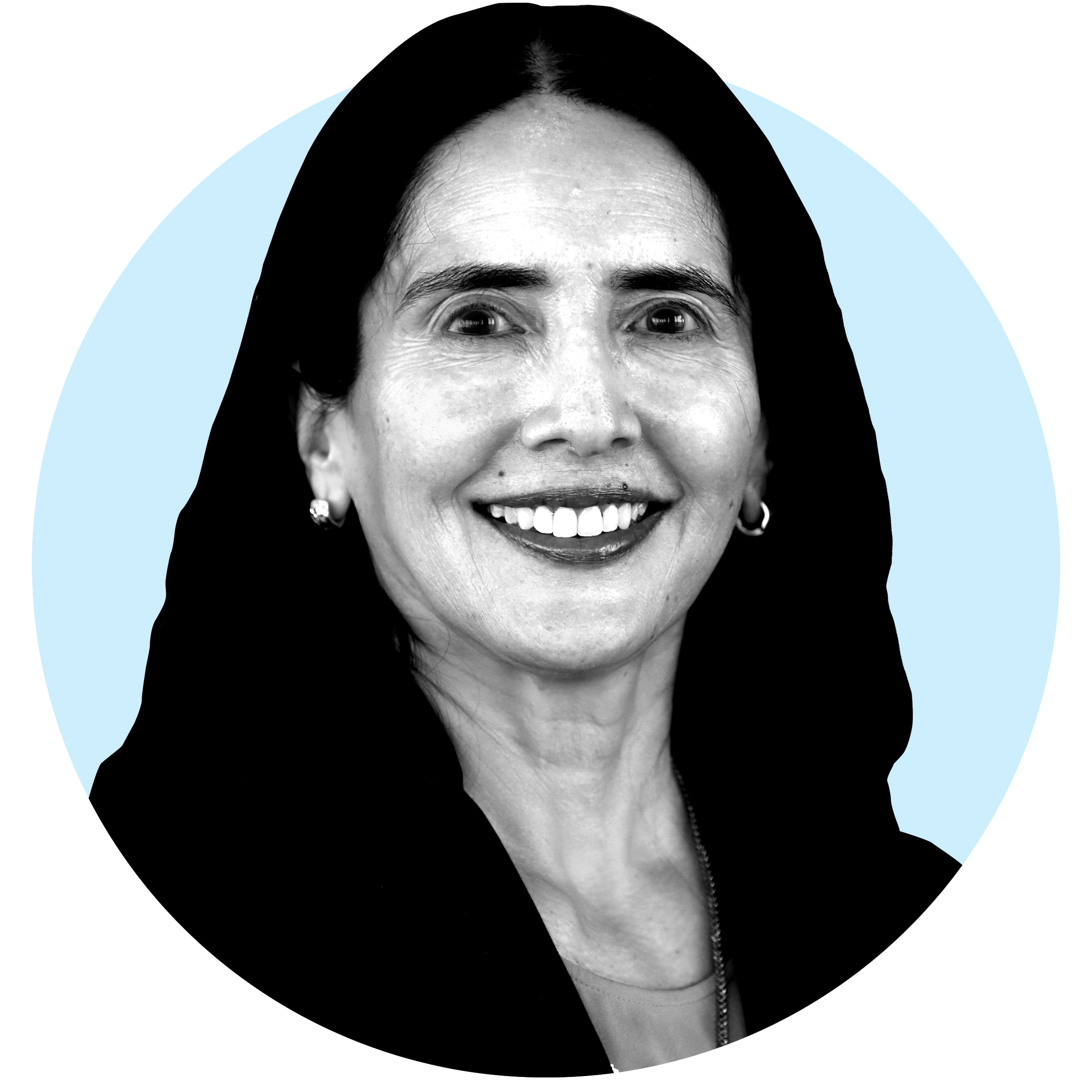
Edited by Rama Ramaswami
Senior Editor, New YorkIt may be tempting to dismiss corporate purpose as a ‘soft’ concern in a world teeming with political and social upheavals. Yet a sense of purpose may be the very thing that can help in overcoming those upheavals. Far from being less important than financial goals, purpose can strengthen the balance sheet by improving employee, customer, and investor satisfaction, which in turn contribute to better performance and greater societal impact; for example, many developing economies have benefited from the initiatives of purpose-driven organizations. As 2022 winds down, now may be the time to reflect on your organization’s purpose and how to strengthen it in the year ahead.
The answer to that question is important because it may reveal insights into how you think about and experience purpose. In this McKinsey Quarterly article, we identify nine types of individual purpose—activities and beliefs that people find meaningful, such as achievement, caring, tradition, and stability. These elements fit into three ways in which people approach purpose: free spirits find meaning in situations that they can control, achievers gravitate toward self-improvement, and caregivers find most meaning in caring for others. By understanding these distinctions, leaders can help themselves and their teams develop activities tailored to different personalities and situations. “Be transparent, be open, and give people the chance to be supportive,” counsels McKinsey senior partner Acha Leke in this discussion on the importance of individual purpose.
That’s the number of employees who feel that organizational purpose is important, according to research by McKinsey senior partner Bill Schaninger and others. But only about half that number—42 percent—believe that their companies’ purpose statements have much impact. To bridge this gap, “embed your reflection, exploration, discussion, and action in the heart of your business and your organization,” say the authors. For example, leaders could start by evaluating whether the relationships among their organizations’ social and environmental impact, strategy, and purpose are aligned.
That’s McKinsey’s Olivia Loadwick, Robin Nuttall, Matt Stone, and others in this article on embedding purpose in organizations to deliver value. Leaders have more freedom than they think to reshape their businesses in a purposeful way. Five elements that can elevate purpose in the long term include portfolio strategy and products; people and culture; processes and systems; performance metrics; and positions and engagement. “Purpose is a source of competitive advantage, but it must be genuine and infused in your organization’s business model,” the authors say. “The 5Ps provide a framework to help companies embed purpose in a systematic, holistic way.”
Purpose-driven organizations can have a tangible effect on society, as the example of mobile money service provider M-Pesa Africa shows. In this McKinsey Talking Banking Matters podcast, M-Pesa managing director Sitoyo Lopokoiyit discusses how the fintech’s mission of reinventing financial services in Africa has lifted many households out of poverty since its launch in Kenya in 2007. “It has had a major impact on the Kenyan economy, including helping increase the country’s financial inclusion from only 26 percent in 2006 to 84 percent in 2021,” says Lopokoiyit. Although M-Pesa has now expanded into several other markets in Africa, it hasn’t strayed from its original goal of improving people’s lives, he says: “In terms of success, one of the key things is a deep commitment by the management to see it work. Purpose and people first; profits will follow.”
‘Paying lip service to social purpose does not cut it with today’s consumers.’ That’s according to an Economist Group survey on how brands can enhance both business and social health through purpose. Your company’s reputation can plummet if its purpose comes across as ethically questionable or just a marketing gimmick. A common mistake among many organizations is a failure to measure purpose-related efforts with the same seriousness given to metrics such as revenue and profit, according to a Harvard Business Review study. Whether you track customer feedback, referrals, or adoption of your product or service, “identifying one simple metric, even if it’s an imperfect measure, will help keep your purpose at the center of daily operations,” the author says.
Lead purposefully.
Share these insights
Did you enjoy this newsletter? Forward it to colleagues and friends so they can subscribe too. Was this issue forwarded to you? Sign up for it and sample our 40+ other free email subscriptions here.
This email contains information about McKinsey's research, insights, services, or events. By opening our emails or clicking on links, you agree to our use of cookies and web tracking technology. For more information on how we use and protect your information, please review our privacy policy.
You received this email because you subscribed to the Leading Off newsletter.
Copyright © 2022 | McKinsey & Company, 3 World Trade Center, 175 Greenwich Street, New York, NY 10007
by "McKinsey Leading Off" <publishing@email.mckinsey.com> - 01:10 - 21 Nov 2022 -
Burnout has hit record levels worldwide. What helps, and what doesn’t, in fighting it?
On Point
Address the causes of burnout Yes, I'm still interested 
Edited by Alexandra Mondalek
Editor, New York• No words. Burnout is a condition plaguing people across the world, according to a McKinsey Health Institute (MHI) survey of 15,000 employees in 15 countries. But where people’s experiences differ is based on the cultural context around burnout. For example, in translating the McKinsey survey to local languages, researchers discovered that there may not always be a word that relates to mental health at work, showing one way that stigmas may exist in communities, McKinsey partner and MHI coleader Erica Coe explains.
This email contains information about McKinsey's research, insights, services, or events. By opening our emails or clicking on links, you agree to our use of cookies and web tracking technology. For more information on how we use and protect your information, please review our privacy policy.
You received this email because you subscribed to the On Point newsletter.
Copyright © 2022 | McKinsey & Company, 3 World Trade Center, 175 Greenwich Street, New York, NY 10007
by "McKinsey On Point" <publishing@email.mckinsey.com> - 12:31 - 21 Nov 2022 -
The week in charts
The Week in Charts
Women in leadership roles, the Gulf of Mexico's lower-carbon potential, and more Yes, I'm still interested Share these insights
Did you enjoy this newsletter? Forward it to colleagues and friends so they can subscribe too. Was this issue forwarded to you? Sign up for it and sample our 40+ other free email subscriptions here.
This email contains information about McKinsey's research, insights, services, or events. By opening our emails or clicking on links, you agree to our use of cookies and web tracking technology. For more information on how we use and protect your information, please review our privacy policy.
You received this email because you subscribed to The Week in Charts newsletter.
Copyright © 2022 | McKinsey & Company, 3 World Trade Center, 175 Greenwich Street, New York, NY 10007
by "McKinsey Week in Charts" <publishing@email.mckinsey.com> - 03:09 - 19 Nov 2022 -
Digitizing the risk function
Harmony Internal - McKinsey
'Slowly' doesn’t mean 'never' Yes, I'm still interested 
Digitizing the risk function
Our readers well know that digital technologies are blazing a trail through all corporate functions. Risk is no exception, but the extreme sensitivity required to manage it has some important implications: tolerance for bugs and errors is necessarily low, and the cost of errors may be unacceptably high. Progress in digitizing the risk function and its processes has therefore proceeded slowly. But “slowly” doesn’t mean “never.”
The most fundamental challenge is managing a culture of innovation in a way that’s appropriate for risk. Robust controls must constrain the test-and-learn pilot projects common in digital transformations. Minimum viable products refined over successive iterations generally aren’t appropriate. And organizations must build digital risk management processes incrementally: specific capabilities are usually developed and released one by one. For all these reasons, it takes longer to digitize the risk function than, say, customer service. Yet at a time of rising costs, it really must be digitized.
To learn more, read our classic 2017 article “Digital risk: Transforming risk management for the 2020s,” which focuses on the banking industry but has many lessons for every kind of business.Learn how to digitize risk 


Share these insights
Did you enjoy this newsletter? Forward it to colleagues and friends so they can subscribe too. Was this issue forwarded to you? Sign up for it and sample our 40+ other free email subscriptions here.
This email contains information about McKinsey's research, insights, services, or events. By opening our emails or clicking on links, you agree to our use of cookies and web tracking technology. For more information on how we use and protect your information, please review our privacy policy.
You received this email because you subscribed to our McKinsey Classics newsletter.
Copyright © 2022 | McKinsey & Company, 3 World Trade Center, 175 Greenwich Street, New York, NY 10007
by "McKinsey Classics" <publishing@email.mckinsey.com> - 11:34 - 19 Nov 2022 -
How AI can help drug discovery, digital twins, recycling more types of plastic, and more: The Daily Read weekender
Harmony Internal - McKinsey
Recharge with this week’s highlights CURATED PICKS FOR YOUR DOWNTIME, FROM OUR EDITORS

Edited by Joyce Yoo
Editor, New YorkAs we approach the Thanksgiving holiday in the US, take a moment to catch up on the week’s big reads on how AI can speed up drug discovery, digital methods that help transform product development, investing in space, and more.
Quote of the day
—David Liu, CEO and founder of Plus, on why his company is focused on automating driving for trucks instead of cars in “Logistics Disruptors: Plus CEO David Liu on why AI should take the wheel in the trucking industry”
Chart of the day
ready to unwind?
Share these insights
Did you enjoy this newsletter? Forward it to colleagues and friends so they can subscribe too. Was this issue forwarded to you? Sign up for it and sample our 40+ other free email subscriptions here.
This email contains information about McKinsey's research, insights, services, or events. By opening our emails or clicking on links, you agree to our use of cookies and web tracking technology. For more information on how we use and protect your information, please review our privacy policy.
You received this email because you subscribed to the Daily Read newsletter.
Copyright © 2022 | McKinsey & Company, 3 World Trade Center, 175 Greenwich Street, New York, NY 10007
by "McKinsey Daily Read" <publishing@email.mckinsey.com> - 06:30 - 18 Nov 2022 -
Managing out? Women leaders are leaving the workplace in droves
The Shortlist
The ‘great breakup’ 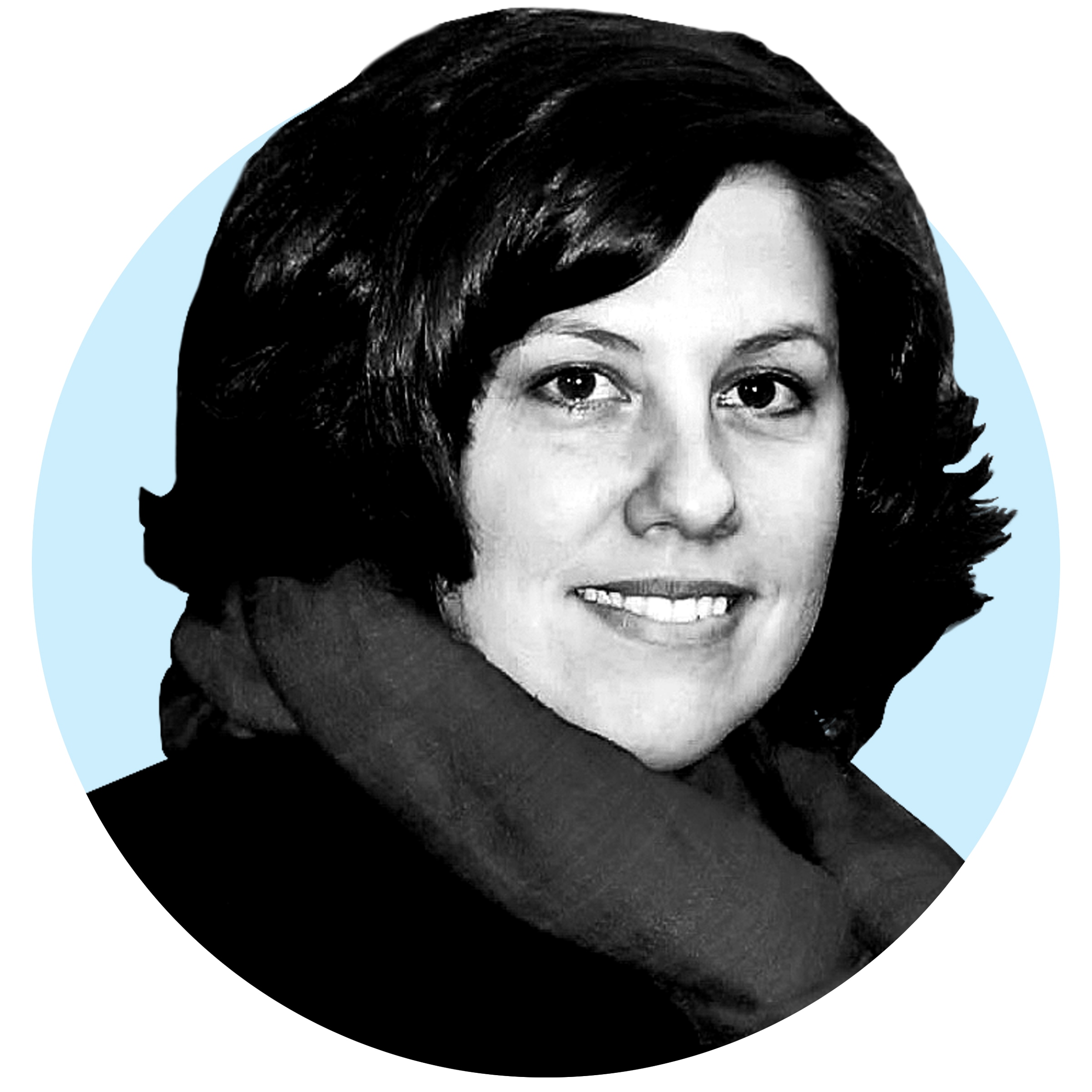
Edited by Barbara Tierney
Senior Editor, New YorkThis week, we look at some sobering trends facing women leaders in the workplace. Plus, an interview with the Spanish-born chef José Andrés on what working in emergencies has taught him, and a McKinsey technology expert on how business leaders can harness innovation.
Playing catch-up. Women—and especially women of color—are dramatically underrepresented in corporate America, particularly in senior leadership. Only one in four C-suite leaders is a woman, and only one in 20 is a woman of color. For the eighth consecutive year of the report, a “broken rung” at the first step up to manager is holding women back. For every 100 men who are promoted from entry level to manager, only 87 women are promoted, and only 82 women of color are promoted. As a result, men significantly outnumber women at the manager level, preventing women from catching up.
Watching from the wings. Now, with women leaders leaving at the highest rates in years, companies have a new pipeline problem. As McKinsey senior partners Alexis Krivkovich and Lareina Yee and their colleagues note, if organizations don’t take action, they won’t lose just their women leaders—they risk losing the next generation of women too. Young women are even more ambitious, and they place a higher premium on working in an equitable, supportive, and inclusive workplace.
Still ‘the only.’ Women’s relative representation among jobs in engineering and technical fields is lower than it was in 2018. As a result, women in technical roles are twice as likely as women overall to say that they are frequently the only woman in the room at work. These trends have troubling implications for gender equality. Engineering and technical roles are among corporate America’s fastest-growing and highest-paying job categories. If women in these roles don’t see an equal path to advancement, it could lead to larger gaps in both representation and earnings between women and men overall.
In the next few years, new and expanded technologies will change the business landscape at unprecedented pace and scale. How can business leaders prepare to harness innovation?
Companies need to look to the edge of the organization, where the business interfaces with its customers, suppliers, and other stakeholders and where small-scale innovations are happening. They should focus on empowering the hands-on experts—engineers, chemists, product developers, and scientists—who are working on the most complex problems for the business.
What are the common practices to this approach?
To empower these edge workers, companies need to form a portfolio of small teams and give them the freedom to work independently along with clear goals and responsibilities. That means, for example, that if the business doesn’t have people with the skills they need, the team can go out and hire them directly. They can spend their allocated budget as they see fit, experiment and fail without penalty—within boundaries—and decide on technologies to meet their goals—within proscribed guidelines.
At Google, for instance, product managers across the entire business had to report in every Friday on the percentage of user growth for their particular product. This made it easier to track progress. Initiatives that weren’t growing were quickly defunded. Those that did well attracted more resources.
Google also developed a uniform build system—a set of tools and practices around CI/CD, or continuous integration and continuous delivery—that every product team can use, as well as shared and scalable infrastructure resources that support the common needs of products and businesses. This approach made authentication much simpler and faster. Because all code followed through this model, it was easier to spread it throughout the organization. This is a good example of how establishing mechanisms to support experts and scaling winning innovations helps the entire organization to keep pace.
Tell us what you think Share these insights
This email contains information about McKinsey's research, insights, services, or events. By opening our emails or clicking on links, you agree to our use of cookies and web tracking technology. For more information on how we use and protect your information, please review our privacy policy.
You received this email because you subscribed to The Shortlist newsletter.
Copyright © 2022 | McKinsey & Company, 3 World Trade Center, 175 Greenwich Street, New York, NY 10007
by "McKinsey Shortlist" <publishing@email.mckinsey.com> - 01:18 - 18 Nov 2022 -
The industries that make up the built environment are fragmented. Can these industries accelerate green growth?
On Point
Creating new green value pools Yes, I'm still interested 
Edited by Alexandra Mondalek
Editor, New York• A cleaner future. The built environment is directly or indirectly responsible for about 40% of global carbon dioxide emissions from fuel combustion and 25% of overall greenhouse-gas emissions. As such, it is among the highest-emitting industries. Decarbonizing could help shift the built environment into a cleaner future while building new businesses, according to McKinsey partner Anna Moore and coauthors. This includes primary value pools of more than $320 billion in resilient materials and systems and more than $240 billion in retrofitting existing assets.
This email contains information about McKinsey's research, insights, services, or events. By opening our emails or clicking on links, you agree to our use of cookies and web tracking technology. For more information on how we use and protect your information, please review our privacy policy.
You received this email because you subscribed to the On Point newsletter.
Copyright © 2022 | McKinsey & Company, 3 World Trade Center, 175 Greenwich Street, New York, NY 10007
by "McKinsey On Point" <publishing@email.mckinsey.com> - 12:41 - 18 Nov 2022 -
90 percent of CEOs regret how they handled their transition to power—here’s how to turn that time into a win
Harmony Internal - McKinsey
Don't make it about you Yes, I'm still interested 
Edited by Sarah Skinner
Editor, New YorkBecoming CEO might be one of the most defining moments of your life: you've climbed the corporate ladder and are about to step into a whole new era. But the best CEOs make this not just a time of personal transition, but an institutional one; a new CEO is naturally a shock to company systems and that shock can be used to catalyze major change. Up to 90 percent of CEOs confess that they wish they'd managed their transition differently. According to a new McKinsey Quarterly article, the CEOs that make the right big moves at the start of their tenure can be up to six times more successful, and there are four major changes that can turn your first six to twelve months from a difficult time into a crowning success. Don’t miss this in-depth piece by senior partners and CEO experts Carolyn Dewar, Scott Keller, Vikram Malhotra, and Kurt Strovink that goes behind the scenes of the first months in the top job, including perspectives from more than a dozen current and former CEOs of some of the world’s biggest companies.
Quote of the day
Chart of the day
ALSO NEW
Share these insights
Did you enjoy this newsletter? Forward it to colleagues and friends so they can subscribe too. Was this issue forwarded to you? Sign up for it and sample our 40+ other free email subscriptions here.
This email contains information about McKinsey's research, insights, services, or events. By opening our emails or clicking on links, you agree to our use of cookies and web tracking technology. For more information on how we use and protect your information, please review our privacy policy.
You received this email because you subscribed to the Daily Read newsletter.
Copyright © 2022 | McKinsey & Company, 3 World Trade Center, 175 Greenwich Street, New York, NY 10007
by "McKinsey Daily Read" <publishing@email.mckinsey.com> - 06:17 - 17 Nov 2022 -
‘It will be a paradigm shift’: Daphne Koller on machine learning in drug discovery
Harmony Internal - McKinsey
Collaborate now Yes, I'm still interested New from McKinsey & Company

‘It will be a paradigm shift’: Daphne Koller on machine learning in drug discovery
Collaborate now 

Share these insights
This email contains information about McKinsey’s research, insights, services, or events. By opening our emails or clicking on links, you agree to our use of cookies and web tracking technology. For more information on how we use and protect your information, please review our privacy policy.
You received this email because you subscribed to The Next Normal newsletter list.
Copyright © 2022 | McKinsey & Company, 3 World Trade Center, 175 Greenwich Street, New York, NY 10007
by "McKinsey & Company" <publishing@email.mckinsey.com> - 12:04 - 17 Nov 2022 -
activNews
activNews
Welcome to activNews, bringing you all of the latest news, insights and advice from the team at activpayroll.
activpayroll Newsletter
Welcome to our November newsletter
This month we are taking a look a one of the hot topics facing businesses across the globe - the Great Resignation. Kirsten Wright our Head of Global HR Solutions shares her views on the challenges it presents to business.
In this edition we are also featuring feedback from our first Client Advisory Group and introducing you to our sales team.
Thank you for taking the time to read our newsletter. If you would like to find out more about activpayroll and the services we offer please take a look at our website
The Great Resignation

The Great Resignation has been a highly topical issue in recent times, and it is still very much to the forefront of HR professionals’ minds, despite the outlook on the economy.
In today’s post pandemic world, the pillars of 9 to 5 office working are deteriorating, with employees no longer willing to sacrifice quite as much of their lives for work as generations before them were. People have changed their view of work, with a greater emphasis on working to live and they are subsequently placing more value on a happy fulfilling life. Find out how Kirsten Wright Head of Global HR Solutions views the challenges and solutions for your business.
Update - Client Advisory Forum

Industry experts from our customer base attended our first Client Advisory Group with participants from across the globe this October.
Discussions focused on:
Current market opportunities and challenges
Listening to the voice of the customers in informing our outcome based roadmap
Features of great Client Experience
Stephen Wratten, our Head of Product Management said: ‘We saw strong alignment with customer needs and our roadmap. Key themes included a need for global tax advice in the ever changing global payroll world, real time reporting for decision making, automation, and the power of building professional networks
‘We will be including the feedback into our roadmap and service decisions and are already planning the next session!’
If you are interested in being part of future Advisory Group sessions please get in touch
“I really did enjoy the session and felt that it was extremely beneficial and great to have such like minded people on the call together” Lisa Williams, Coupa
We let our customers do the talking…


The Rewards shortlist
We are delighted to reveal that we are finalists in The Rewards 2022, Best Employer category read more
Keep in touch for all our future news
As always, you can keep up-to-date with all of our latest news, insights and team updates over on our social media channels.




Copyright (C) 2022 activpayroll. All rights reserved.
activpayroll
Cults Business Park
Station Road
Cults
Aberdeen
AB15 9PE
Our mailing address is:
pr@activpayroll.com
Want to change how you receive these emails?
You can update your preferences or unsubscribe
by "Lynn Smith" <PR@activpayroll.com> - 06:14 - 17 Nov 2022


















